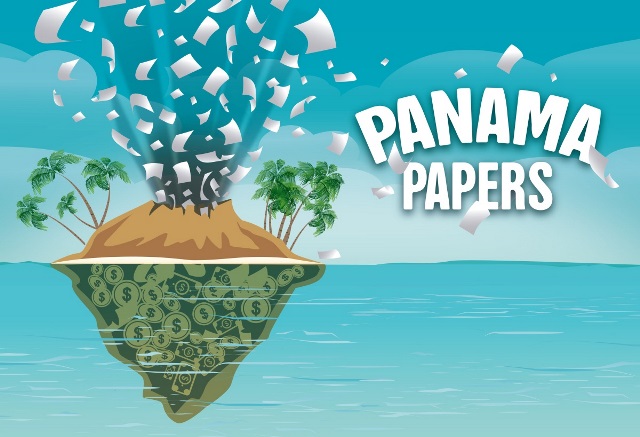
Image credit: Vector Open Stock
Release of the so-called Panama Papers requires public relations teams to act swiftly to prepare for a possible PR crisis.
The Panama Papers, if you haven’t heard, refers to leaked private documents of Panamanian law firm Mossack Fonseca. The leak has led to a global investigation into the secretive industry of offshore corporations and trusts that the world’s rich and powerful use to hide assets and avoid taxes. The papers name government leaders, business executives and other prominent people behind the offshore companies. The International Consortium of Investigative Journalists (ICIJ) has posted a searchable database with the names of over 200,000 offshore entities derived from the leaked documents.
Even Law Abiders Are at Risk
Individuals and businesses who committed no wrongdoing are at risk of being found guilty by association. Companies don’t have to perform illegal or even unethical actions to find themselves in a PR crisis.
The ICIJ itself states that there are legitimate uses for offshore companies and trusts. In addition many people and entities have the same or similar names, which can result in confusion. Its website disclaimer states: “We do not intend to suggest or imply that any persons, companies or other entities included in the ICIJ Offshore Leaks Database have broken the law or otherwise acted improperly.”
The public perception may not be forgiving. “People’s tendency to ‘Google it’ and instantly believe what they read can be an individual’s or PR department’s worst nightmare,” writes Nelson Granados, associate professor of information systems and digital innovation at Pepperdine University’s Graziadio School of Business, in a Forbes article.
So far, the media is only naming celebrities and well-known government leaders, but that will change as reporters continue to scrutinize the data base. “Even individuals, banks, law firms, and companies that have legitimately dealt with offshore transactions should prepare for a possible PR crisis,” Granados warns.
How to Prepare for a Panama Papers PR Crisis
Experts urge PR to take immediate steps to plan their reaction.
- Immediately name someone in your firm to search for your company, clients and colleagues’ names in the database, advises Michelle Pittman, chief strategy officer at marketing and communications agency JConnelly. Pittman offers advice on how to respond in her company blog post. Spotting associations early will give you more time to prepare.
- Don’t let your guard down. More stories will follow as journalists continue to scrutinize the extensive database.
- Plan a response. Prepare responses for investors, regulators, journalists, and other stakeholders. Decide how responses will be communicated to the press and in social media, Granados says. Plan responses to worst-case scenarios, in which false or distorted incriminating facts are published. Explain the organization’s legitimate use of offshore financial vehicles and their benefits to investors and other stakeholders, and how your company makes sure it stays within the law.
- React with prudence and caution. Use the phone to contact clients rather than text or email to ensure precise communication and avoid misunderstandings. “Vet all communication with clients’ legal counsel. Assess all risks. Limit related external communication to written statements,” recommends Scott Farmelant, vice president at PR and marketing firm Denterlein.
- Continue to monitor the media. Scandals like the Panama Papers create ripples that can linger for years. Media monitoring is essential, Farmelant says. Be sure to track client mentions and related mentions by way of industry sector.
- Stress message discipline. It’s crucial for all members of organization to comply with media policies. Failure to coordinate responses could have significant adverse implications.
The business may need a different crisis management plan if the named party is a company executive with a personal offshore account or trust, not a company account. PR must prepare for both possibilities – a business account and a personal executive account. Executives with personal offshore accounts may be advised to retain separate legal and PR counsel.
Time to Revamp PR Strategy
The incident shows that that PR must rethink its strategy, PR crisis experts say. “In the ‘cloud era,’ any individual or organization with a secret to hide must rethink that approach and all associated PR strategies or tactics. Hackers, data mining and a demand for transparency have cast a light onto the so-called ‘shadows of secrecy,’ Farmelant writes.
Pittman agrees that organizations should expect similar information leaking and data shifting in the future as data-driven research boosts investigative journalism. “While no one can foresee where every crisis will come from, a strong crisis communications plan can at least put you one step ahead,” Pittman says. “The next data leak could just be right around the corner”
Bottom Line: Release of the Panama Papers is a wakeup call for PR. Even companies and individuals who did nothing wrong can be named in the infamous documents and found guilty by association. It’s imperative to create a communications plan, including a response and a plan for disseminating information.
William J. Comcowich founded and served as CEO of CyberAlert LLC, the predecessor of Glean.info. He is currently serving as Interim CEO and member of the Board of Directors. Glean.info provides customized media monitoring, media measurement and analytics solutions across all types of traditional and social media.





